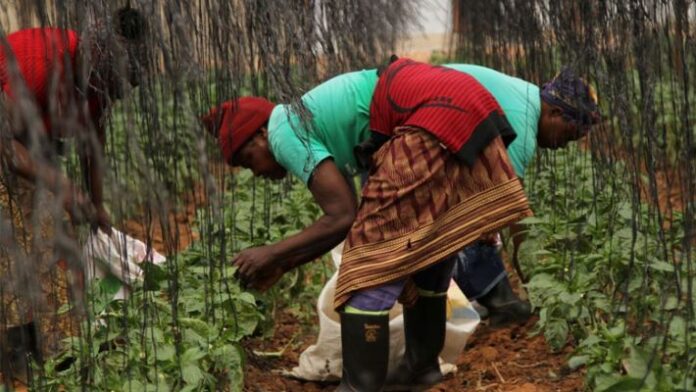The Central African Republic (CAR) can lift millions of people out of poverty by transforming its vital agriculture sector as a key driver of economic growth, says the World Bank in its latest Economic Update report on the country.
About 75 percent of Central Africans depend on agriculture for their livelihoods, mostly informal jobs.
However, according to the World Bank, the sector has been hampered in recent years by lack of investment and modernisation, as well as poor infrastructure.
This is contained in a report titled: “Weathering Growing Risks: Addressing Macro-Fiscal Challenges and Unlocking the Potential of the Agriculture Sector.”
According to the World Bank, bold and sustained reforms to revitalise agriculture, as a significant contributor to poverty reduction, are urgent, as CAR’s economy faces overlapping crises.
Higher food and fuel prices, disruption in supply chains, political turmoil following the adoption of the crypto-currency law, and the impact of the war in Ukraine, are slowing economic growth in CAR, with risks tilted to the downside.
“CAR has abundant arable land and a favorable climate for agriculture and livestock,” said Guido Rurangwa, World Bank’s country manager for CAR.
“A comprehensive strategy, underpinned by concrete reforms, can unlock the potential of the agriculture sector, protect livelihoods, accelerate growth, create jobs, and improve the living conditions of Central Africans.”
A cycle of political instability in the 2000s and 2010s have contributed to the sector’s diminishing share in GDP growth from 55 percent in 2011 to 32 percent in 2020, as the production of crops, livestock, forestry, and fishery have all declined.
Over the past decade, public investments in agriculture have averaged less than 3 percent of total public sector spending, well below the 10 percent target set under the Comprehensive Africa Agriculture Development Programme, a continent-wide initiative of the African Union.
The report highlights the importance of agriculture to women, who represent more than 78% of agricultural labor in CAR.
Empowering them is essential for the well-being of families and rural communities and overall economic productivity, as well as for improving food security and reducing poverty.









